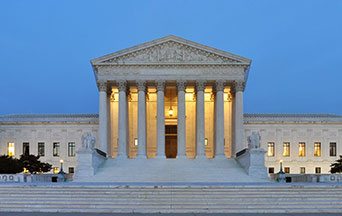 The news of the death of Norma Leah McCorvey has spread through the pro-life and conservative world. The 69-year-old lady was well-known as the defendant in the infamous Roe v. Wade Supreme Court decision striking down all abortion laws in the United States. Although she never did have the abortion made legally possible by the ruling, she became a poster child of the Woman’s Liberation Movement. She later came to regret her pivotal role in the decision and joined the pro-life cause.
The news of the death of Norma Leah McCorvey has spread through the pro-life and conservative world. The 69-year-old lady was well-known as the defendant in the infamous Roe v. Wade Supreme Court decision striking down all abortion laws in the United States. Although she never did have the abortion made legally possible by the ruling, she became a poster child of the Woman’s Liberation Movement. She later came to regret her pivotal role in the decision and joined the pro-life cause.
Upon her change of heart, she said:“I am dedicated to spending the rest of my life undoing the law that bears my name.”
Many have commented on her life and heroic turnaround. Indeed, her courage needs to be recognized. It was no small thing to challenge the whole liberal establishment.
The drama of her life was similar to that of many of her generation who were victims of the empty promises of the sixties.
 Learn All About the Prophecies of Our Lady of Good Success About Our Times
Learn All About the Prophecies of Our Lady of Good Success About Our Times
Indeed, Norma was a child when the explosion of sexual liberation first appeared everywhere. A radical change came upon society already prepared by rumblings in the fifties. Through music, fashions and drugs, all society was shaken by the loosening of moral codes, the introduction of contraception and the acceptance of free love. The new world created by this paradigm shift was to be one governed by love and peace.
Like so many at the time, Norma was taken up by this wave of social change. Everyone was told that to “do your own thing” was the way to obtain happiness. However, this happiness denied the reality of life’s sufferings and responsibilities. When she became pregnant with her second child, she found herself not knowing what to do. For the first time, she felt the empty promises of the sixties. It was not to be the last.
Her case was taken by Sarah Weddington, a pro-abortion feminist attorney who would use her case to challenge the laws prohibiting abortion in Texas. Norma later said she lied about the circumstances of her pregnancy, claiming it was due to rape, to increase the emotional charge. She declared that everything about the case was a lie put at the service of the sexual liberation cause.
Her case dragged on, and the child was born and put up for adoption. The feminists nevertheless continued pressing the case and were euphoric when her case helped overturn the nation’s abortion laws and made the infamous and unnatural practice available on demand.
Norma then experienced the second empty promise of the sixties. Instead of being made a heroine of the feminist movement, she was gradually discarded. After an initial period as a celebrity, she was forgotten. Typically, revolutionary causes make use of figures they create which they later toss aside when their usefulness is no longer needed. Norma was one such figure.
But God did not abandon Norma. In her appearances at pro-abortion events, she was often approached by pro-life activists who showed her kindness and charity. The sharp contrasts between the two treatments convinced Norma to disavow the false promises of “liberation” and embrace the pro-life cause.
She never looked back. She made the crusade for the unborn the purpose of her life. She asked the Supreme Court to reconsider the case and was refused. She provided constant testimony of the false promises and lies of the sexual revolution. On August 17, 1998, Norma was received into the Catholic Church at St. Thomas Aquinas Catholic Church in Dallas.![]()
FREE e-Book: A Spanish Mystic in Quito
Until the end, she never wavered in her good resolution. She endured the insults of the other side who considered her an embarrassment. The pro-life movement rightfully honors the death of a person who was mugged by the cruel reality and had the courage to stand up to the pro-death establishment.
Norma was not the only one to take this tragic trajectory. So many Americans who survived the sixties traveled similar paths. They swallowed the empty promises of the sexual liberation movement. They adopted promiscuous lifestyles, made tragic mistakes and suffered the consequences of their acts.
But God had other plans for them. Like Norma, many came to realize the errors of their ways. Through God’s graces, they took those giant steps to start making their way home. Not only did they change, but these Americans embraced the Church and became ardent defenders of that which they had once rejected. The words of Saint Remigius at the conversion of Clovis, King of the Franks, in 498, ring so true in these postmodern times: “Adore what you have burned and burn what you adored.”
The death of Norma Leah McCorvey is a reminder that unlike the Sexual Revolution’s empty promises, God’s promises are never empty. God never lies.

